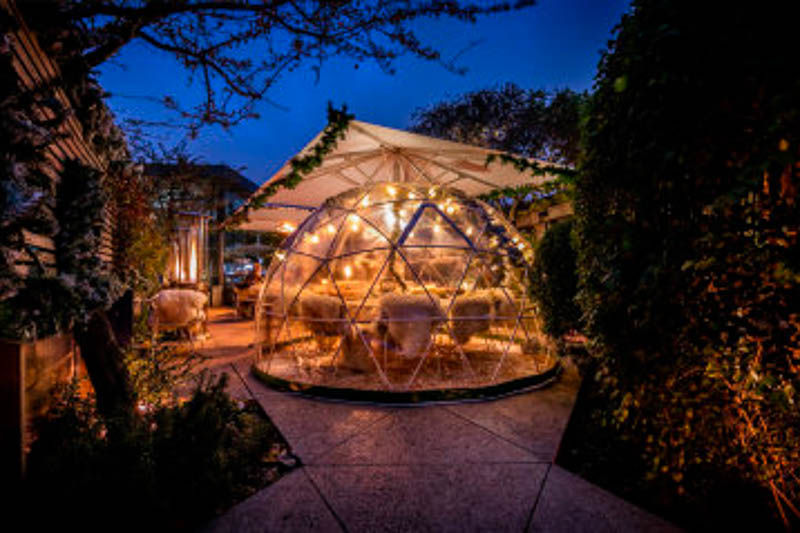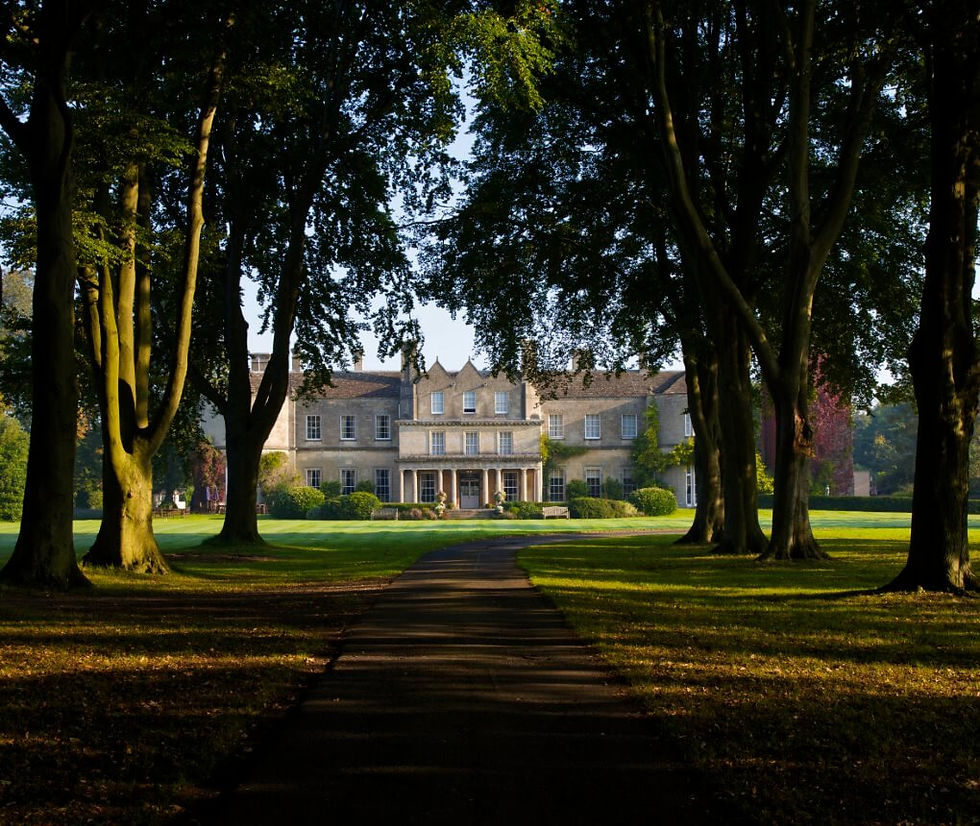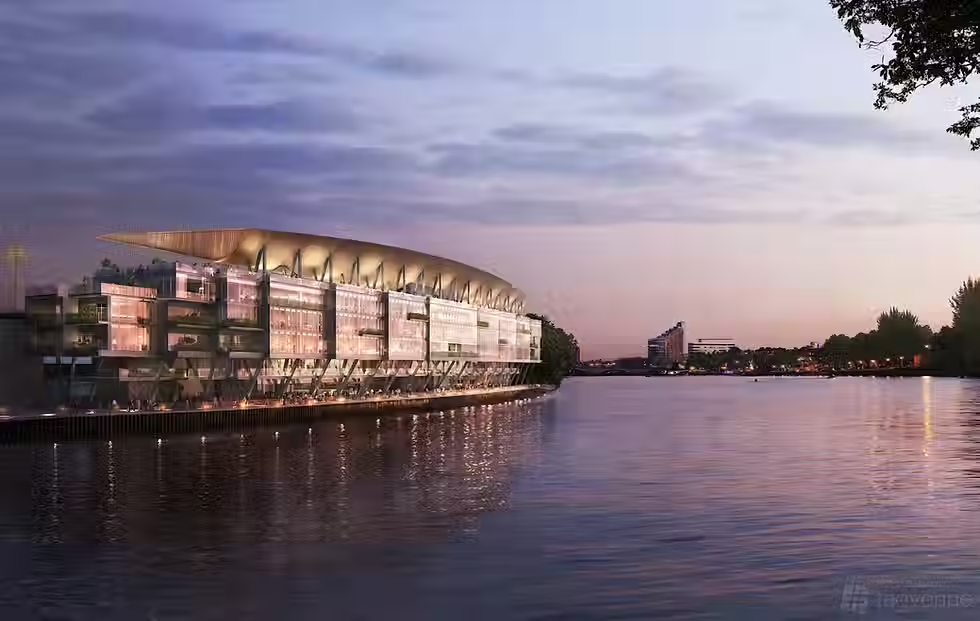What Does an Event Planner Actually Do?
- Abigail

- Aug 4, 2025
- 7 min read
Picture this: you've just been tasked with organising your company's annual conference for 200 people. Or perhaps it's your parents' golden wedding anniversary, and you want it to be absolutely perfect. Your mind starts racing. Venues? Catering? What if it rains? What if nobody turns up? What if everything goes horribly wrong?
This is precisely the moment when most people Google "what does an event planner do" at 2am, hoping to find answers that will either give them the confidence to tackle it themselves or the peace of mind to hand it over to someone who actually knows what they're doing.
So what does an event planner do exactly? Professional event planners handle every aspect of event coordination, from initial venue sourcing and supplier management to budget planning, timeline development, creative styling, and on-the-day logistics coordination.

We're the people who transform your vision into reality through expert event planning services, managing everything from corporate conferences and product launches to social celebrations and milestone events across London, Essex, and Hertfordshire. Essentially, we turn your event dreams into seamless experiences whilst you sleep soundly at night, knowing someone else is worrying about whether the flowers will arrive on time.
At RUMA Events, we've been behind the scenes of hundreds of events across London, Essex, and Hertfordshire. We've seen grown executives nearly cry with relief when their product launch goes off without a hitch, and we've watched brides' faces light up when everything they dreamed of comes together perfectly. That's what we do—and honestly, it never gets old.
We Start Where You Are, Not Where You Think You Should Be
The first thing people get wrong about event planning is thinking they need to have everything figured out before calling a professional. Actually, the opposite is true.
When a client first contacts us, they often start with "I'm sorry, I don't really know what I want yet..." And we stop them right there. That's exactly where we want you to be. Not knowing is the perfect starting point.
Your event planner's job isn't to execute your fully-formed vision—it's to help you discover what that vision actually is. We ask the questions you haven't thought of yet.
What feeling do you want your guests to have when they leave?
What would make this event uniquely yours? What are you secretly worried about?
Last month, a client called about their company's 25th anniversary celebration. They thought they wanted a "nice dinner somewhere in London." Two conversations later, we'd uncovered their real vision: they wanted their team to feel genuinely valued and proud to work there. The dinner became a storytelling evening at a beautiful venue in Shoreditch, where long-serving employees shared favourite memories and new starters learned about the company's journey. Same budget, completely different impact.
We handle the complexity so you can focus on what actually matters—connecting with your guests and enjoying the moment you've worked so hard to create.
The Invisible Architecture of Unforgettable Events
Here's what most people don't realise: the best events feel effortless to attend but are incredibly complex to orchestrate. It's like watching a swan glide across a lake—graceful on the surface, paddling like mad underneath.
Venue Selection
More Than Just a Pretty Space Finding the right venue isn't about scrolling through Pinterest and picking the prettiest option. It's about understanding how people will move through the space, whether the acoustics will work for your speeches, if there's somewhere for your caterers to actually prepare food, and whether your 78-year-old aunt can navigate the stairs.

We once had a client fall in love with a stunning manor house in Essex. Gorgeous photographs, reasonable price, enthusiastic sales team. But when we visited, we noticed the kitchen was tiny, the parking was limited, and the "bridal suite" was directly above the main reception room.
For a corporate conference, it would have been perfect.
For their daughter's wedding with 150 guests and a live band? Disaster waiting to happen.
Supplier Coordination
Herding Very Creative Cats Managing suppliers is like conducting an orchestra where half
the musicians have never played together before. Everyone's talented, everyone's passionate, and everyone has their own way of doing things.
Your florist needs to know when the venue will be available for setup.
Your caterer needs to coordinate with your photographer for the cake cutting.
Your AV team needs to understand your entertainment requirements.
Your photographer needs to know the timeline so they don't miss crucial moments.
We speak all these languages fluently. We know that when a caterer says "we'll be ready by 7pm," they actually mean 7.15pm if everything goes perfectly. We know that lighting technicians need at least two hours longer than they estimate. We know that florists work miracles but need coffee and appreciation in equal measure.
Budget Management
Making Every Pound Work Harder Most people approach event budgets backwards. They look at the total amount they want to spend, then try to divide it equally across everything. But that's not how memorable events work.
Some elements deserve investment because they create lasting impact. Others are places where smart savings can be made without anyone noticing. Knowing the difference comes from experience.
For corporate events, investing in exceptional AV equipment often pays dividends because nothing kills engagement faster than "Can everyone hear me at the back?" For social celebrations, investing in photography usually matters more than expensive favours that get left behind.
We've learned these lessons through years of seeing what works and what doesn't, so you don't have to discover them the expensive way.
Timeline Management: The Art of Invisible Precision
Professional event coordination means orchestrating hundreds of details so seamlessly that everything appears to happen naturally.
Three weeks before your event, we're confirming final guest numbers and dietary requirements. Two weeks before, we're creating detailed timelines and briefing all suppliers. One week before, we're checking weather forecasts and preparing contingency plans.
On the day itself, we're there before the first supplier arrives and stay until the last guest leaves. We're tracking every timeline, managing every transition, and solving every small problem before it becomes a big one.
The goal is simple: you should never have to think about logistics. Your job is to be present, engaged, and genuinely enjoying the event you've created.
Creative Styling: Beyond Pinterest Boards
Everyone starts with inspiration photos these days. "I love this look," they say, showing us a picture from a magazine shoot with a £50,000 styling budget and perfect lighting.
Our job isn't to recreate someone else's vision exactly—it's to capture the feeling you love and translate it into something that works for your specific venue, budget, and guests.
Sometimes that means finding creative alternatives that deliver the same impact for less money. Sometimes it means adding personal touches that make the styling uniquely yours. Always it means understanding that the most Instagram-worthy setup isn't necessarily the one that creates the best guest experience.
We worked with a couple who wanted their Hertfordshire wedding to have a "rustic elegance" feel. Instead of expensive imported linens and elaborate centrepieces, we focused on beautiful lighting, locally-sourced flowers, and personal details that told their story. The result was more beautiful than any magazine spread because it felt authentically them.
Contingency Planning: Expecting the Unexpected
Murphy's Law applies especially to events: if something can go wrong, it probably will. Professional planners don't try to prevent every possible problem—we prepare for them.
Rain backup plans for outdoor elements. Alternative suppliers on standby. Flexible timelines that can accommodate delays. Emergency kits that include everything from sewing supplies to phone chargers.
We've handled venue double-bookings, sudden supplier cancellations, unexpected guest list changes, and once memorably, a power outage that happened just as the keynote speaker took the stage. In each case, having contingency plans meant the show went on and guests never knew there was a problem.
The Day Itself: Where Everything Comes Together
Event day is when months of planning either pay off or fall apart. This is where experience really matters.
While you're getting ready, greeting guests, or simply trying to enjoy your own event, we're managing every operational detail. Coordinating supplier arrivals. Checking that everything's been set up correctly. Managing the timeline. Troubleshooting problems. Facilitating smooth transitions between different parts of your event.
Our goal is invisibility. If we're doing our job well, you shouldn't notice us at all. You should just notice that everything flows perfectly and you feel relaxed and present.
Why the RUMA Approach Feels Different
Most event planning companies work like traditional service providers—you tell them what you want, they execute it, everyone shakes hands and moves on.
We work more like trusted advisors. We get to know you, understand what success looks like from your perspective, and then use our expertise to make it happen in ways you might never have considered.
Because we're funded by our supplier relationships rather than charging hefty client fees, we can afford to be genuinely consultative. Our recommendations aren't influenced by what generates the highest margins—they're based purely on what will create the best outcome for your specific situation.
We've planned intimate boardroom meetings in the City, elaborate celebrations in Essex countryside estates, and everything in between. Each one taught us something new about what makes events truly memorable.
What Does an Event Planner Do? We Make the Impossible Feel Effortless
After reading all this, you might be thinking: "This sounds incredibly complicated. How do event planners keep track of everything?"
The answer is experience, systems, and genuine passion for what we do. We love the challenge of bringing together multiple moving parts to create something beautiful. We thrive on the problem-solving, the creativity, the satisfaction of seeing months of planning come together in a few perfect hours.
But mostly, we love the moment when a client realises they can actually relax and enjoy their own event. When the CEO who was terrified about speaking to 300 people tells us afterwards that they actually had fun. When the bride's mother, who'd been stressed for months, dances until midnight because everything went so perfectly she could finally let go.
That's what an event planner does, really. We take responsibility for the complexity so you can focus on the joy.
At RUMA Events, we bring together years of experience, carefully cultivated supplier relationships, and genuine care for our clients' success. Whether you're planning a corporate milestone in London or a family celebration in Essex, our approach remains the same: understand what matters most to you, then use our expertise to make it happen beautifully.
Ready to discover how professional event planning can transform your next gathering? Explore our Event Planning Services and let's start the conversation about creating something truly special together.
Because the best events don't just happen—they're crafted with care, experience, and just a little bit of magic.








Comments